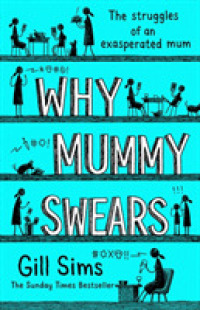- ホーム
- > 洋書
- > 英文書
- > Politics / International Relations
Full Description
Liberal World Order is seen by many as either a fading international order in response to declining American hegemony, or as a failing international order riddled with internal tensions and contradictions. Either way, liberal world order is assumed to be in crisis. The contributors to Liberal World Orders do not reject the argument that liberal order is in crisis. Instead they contend that the crisis is primarily one of authority. This has been compounded by the relative lack of historical context supplied by liberal theorists of 'the international'. By not looking further than the 20th century, the field has ignored moments when similar tensions and contradictions have been evident.
The authors question the way in which the debate about liberalism has been conducted. Against the theoreticians it is proposed that liberalism has suffered from being too closely tied to the quest for scientific authenticity, resulting in a theoretical perspective with little or no commitment to political values and political vision. By reformulating the classical liberalism of Kant, Paine, and Mill into neo-liberalism, liberalism lost its critical and normative potential. Against the policy-makers it is proposed that the practices of liberal ordering are resilient enough to prove durable despite the relative decline in the power and authority of liberal states. Just as cooperative practices between states predated liberalism, aspects of world order today which evolved during the high point of liberal internationalism may succeed in outliving liberalism.
Contents
Introduction
1: G. JOHN IKENBERRY: Liberal Internationalism
2: EMANUEL ADLER: Resilient Liberal International Practices
3: TRINE FLOCKHART: Liberal Imaginations: Transformative Logics of Liberal Order
4: HEATHER RAE and CHRIS REUS-SMIT: Grand Days, Dark Palaces: The Contradictions of Liberal Ordering
5: MARJO KOIVISTO: Liberal World Orders, Reciprocal and Hierarchic
6: RICHARD DEVETAK: 'The fear of universal monarchy': Balance of Power as an Ordering Practice of Liberty
7: JOHN M. HOBSON and MARTIN HALL: Imperialism and Anti-Imperialism in Eurocentric Liberal International Theory
8: KIMBERLEY HUTCHINGS: Liberal Quotidian Practices of World Ordering
9: CASPER SYLVEST: Theoretical Foundations of Liberal Order
10: CHRISTOPHER HOBSON and MILIJA KURKI: Democracy Promotion as a Practice of Liberal World Order
11: PAUL MUSGRAVE and DANIEL NEXON: States of Empire: Liberal Ordering and Imperial Relations
12: TIM DUNNE: Internationalism and Interventionism
13: STEFFANO GUZZINI: Liberal International Order







